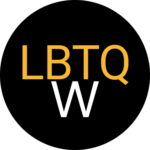 So, here goes… I am bisexual. That’s still something I am afraid to say in certain circles including, unfortunately, LGBTQ+ ones. Despite having a really positive ‘coming out’ experience, it’s still the case that biphobia and bi-erasure exist… particularly, in my experience, in the ‘gay world’. Don’t get me wrong, I am very aware of my many privileges; white, middle class, ability to ‘pass’ as a straight woman, yet despite this I still have experienced a lot of negativity around my sexuality.
So, here goes… I am bisexual. That’s still something I am afraid to say in certain circles including, unfortunately, LGBTQ+ ones. Despite having a really positive ‘coming out’ experience, it’s still the case that biphobia and bi-erasure exist… particularly, in my experience, in the ‘gay world’. Don’t get me wrong, I am very aware of my many privileges; white, middle class, ability to ‘pass’ as a straight woman, yet despite this I still have experienced a lot of negativity around my sexuality.
I officially came out quite late, not because I didn’t know I was Bi, just because it wasn’t something that I needed to worry about. After leaving school I was in a long-term relationship with a man and fitted very well in to the ‘hetero’ world. At the age of 23, that relationship ended and I first started seeing women and it was great to finally explore that part of me. However, I started to notice how people reacted now that I was ‘out’. Initially there was a lot of ‘Oh, so you’ve become a lesbian?’ and in public being clapped/whooped at; told how ‘hot’ it was when I would be out with my female partner. It was my first experience of this and I really didn’t know what to make of it.
When I moved to London I started dating, both men and women, and noticed even more alarming behaviours and comments. From the male population there was a lot of over-sexualisation and threesome requests; they seemed to think that because I’m Bi that means I’m automatically promiscuous. I previously dated a man who, upon talking to his mother about his feelings for me, was told ‘But she’s Bisexual… you can’t marry her!’ as though I was likely to run off with a woman at any second.
Even more upsetting for me, when really enjoying experiencing the vibrant LGBTQ+ scene in London for the first time, was the reaction I got from gay and lesbian people. I was often rejected by women because of my sexuality, told it was disgusting that I dated men and that I could never be trusted to be faithful. On lesbian dating apps/sites, seeing ‘No Bisexuals’ on people’s profiles was hurtful and pushed me to either lie and say I was a lesbian, or just avoid the lesbian/gay communities altogether.
In 2017 I was a victim of sexual assault. At the time I didn’t recognise that this had much to do with my sexual orientation; however through therapy I explored the situation and myself much further and came to realise how much my sexuality affects people’s views of me and, as a result, my own self-perception. The man who assaulted me saw me as a sexual object, something that only existed for the pleasure of others. So he took advantage. I later found out that I was not alone… 46% of bisexual woman have been raped (compared to 17% hetero women and 13% of lesbians), which is a truly horrifying statistic.
Fast forward a year and I’m now working with a charity called Bi Pride UK and am the Bisexuality Lead (and incoming Co-Chair) in the LGBT network at BAE Systems. It’s been amazing what it’s done for me in terms of the networks I now have, my profile at work and my own wellbeing. This year I have won two awards for my contribution to Diversity and Inclusion at BAE and have been shortlisted for a We are the City Rising Star Award alongside some absolutely incredible women.
I’m in a much more comfortable place than I have been in the last 10 years, but that’s not the case for a lot of bisexuals (you can probably see why). In the LGBTQ+ community we’ve all been the outsiders before so we know how it feels; we should be embracing and including Bisexuals, Pansexuals and others who identify outside of heterosexual or homosexual groups.
Samantha Neath
Business Consultant at BAE Systems and Trustee at Bi Pride UK

